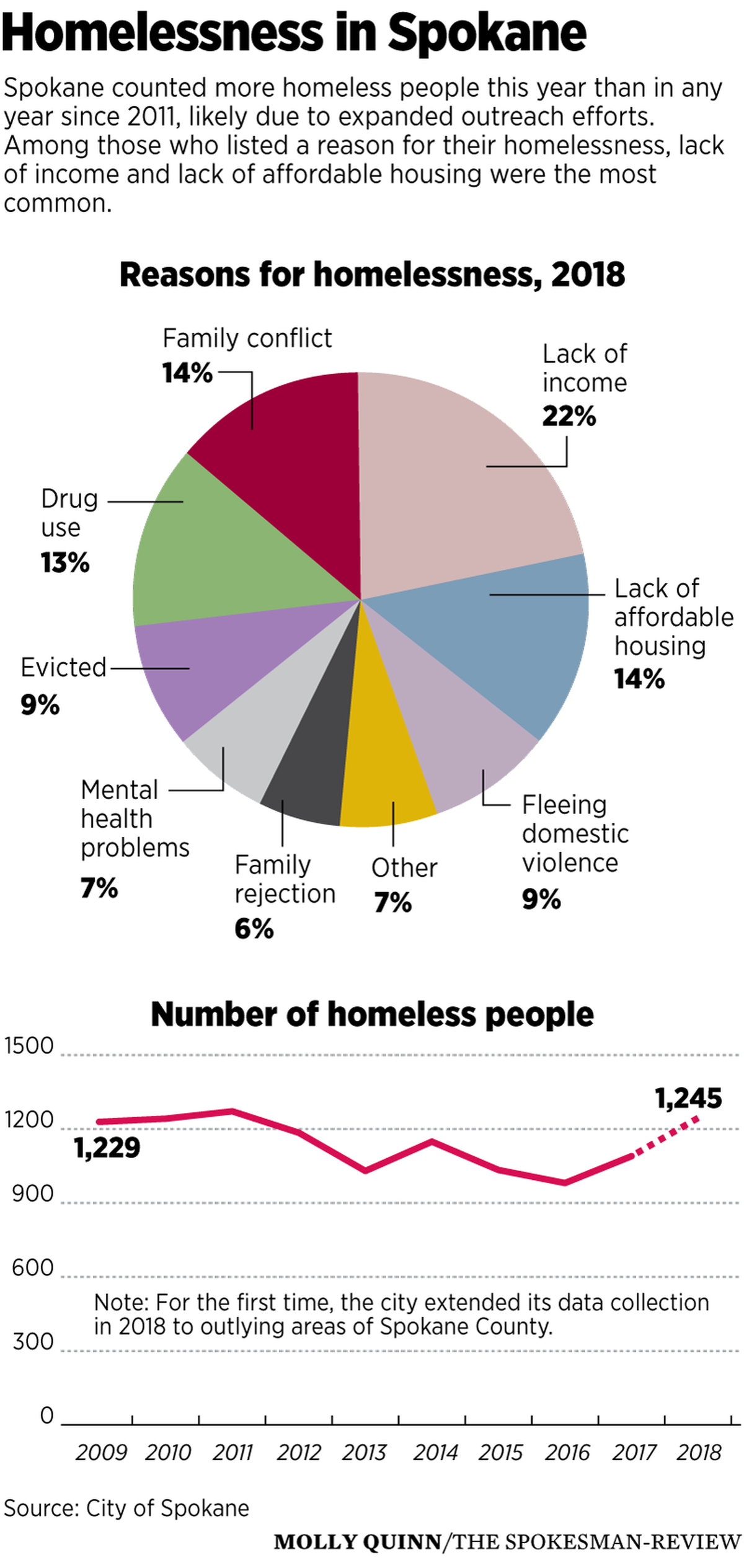Rise in Spokane homeless attributed to better counting effort
Kelly Keenan, Housing and Services director, Dawn Kinder, Neighborhood and Business Services, Tija Danzig, Homeless Services manager, and David Lewis, Homeless Management Information System program manager, gather to present information Monday, April 9, 2018, at Spokane City Hall concerning the Spokane Regional Point-in-Time census of people experiencing homeless in the Spokane community. (Dan Pelle / The Spokesman-Review)
Spokane’s annual homeless count expanded from the downtown core to the entire county this year and found 1,245 people without a home.
While the one-night count in January found more homeless people this year with the broader effort, city officials noted they found fewer chronically homeless people, veterans and minors without a parent or guardian.
City staff said resources to find permanent housing for those groups has been a focus of city homelessness policy, with efforts like a 100-day challenge last summer to house homeless youth.
“We’re happy to see that we were successful with those initiatives,” said Dawn Kinder, head of the city’s Neighborhood and Business Services division.
Cities that receive federal funds for certain housing and homeless services are required to do a one-night count in January. This is the first year Spokane has sent volunteers to outlying areas of Spokane County and the first time they’ve used a mobile app, rather than paper surveys, for data collection.
The count showed a dramatic increase in the number of unsheltered homeless people, from 138 in 2017 to 310 this year.
Tija Danzig, the city’s homeless services program manager, said doing the count during Homeless Connect, an annual resource fair, helped volunteers reach people living in cars and others who are often difficult to count. That’s likely part of the reason for the increase.
This year’s survey also included optional questions designed to help the city better allocate resources, including asking people why they are homeless. Only one-third of homeless families answered that question, and lack of income and lack of affordable housing were the most commonly chosen options.
Fewer people reported having chronic mental illness or a substance abuse problem than in prior years, but the number of self-reported domestic violence survivors was up, from 89 in 2017 to 121 in 2018.
Kinder said the decrease in chronically homeless people meshes with the city’s goal, where “homelessness is rare, brief and non-recurring.”

